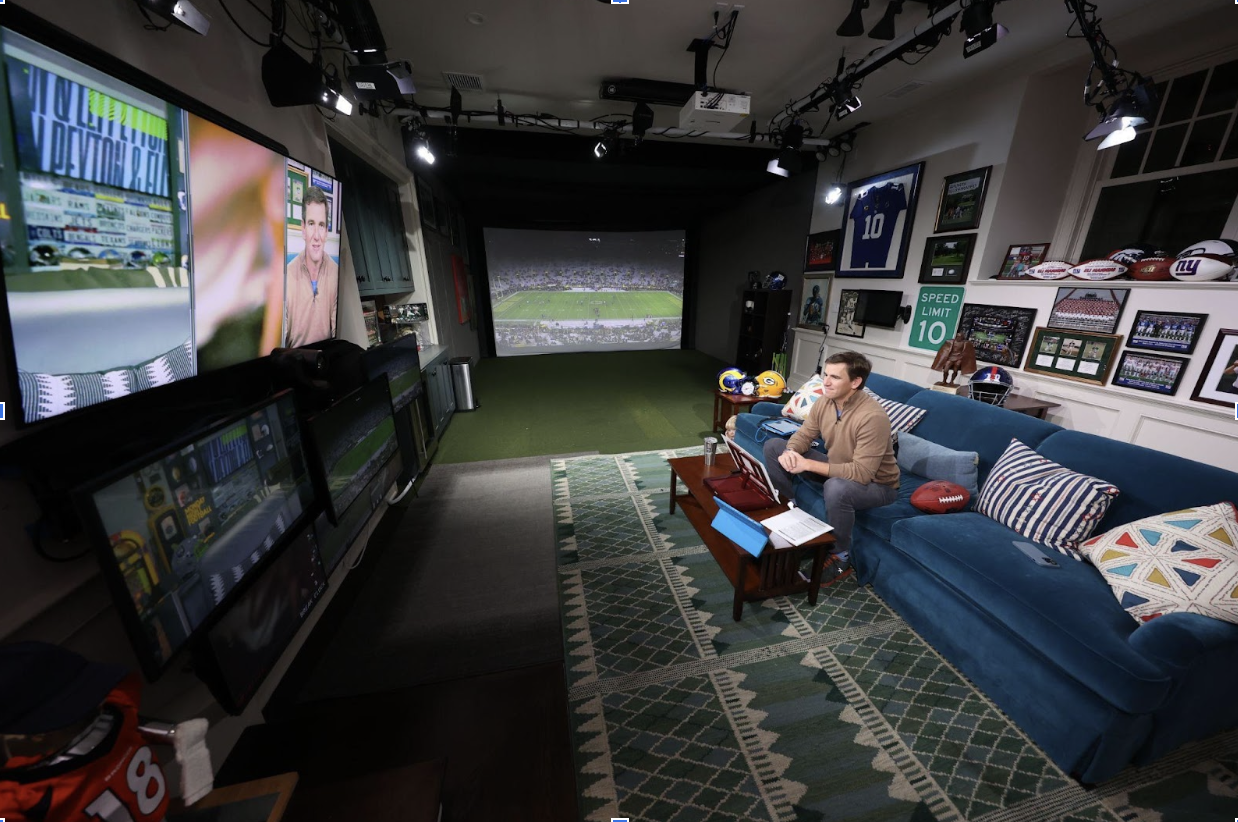Career Series for Kids: So You Wanna Be an Automotive Engineer
In our ‘So You Wanna Be’ career series for kids, we bring you stories of individuals sharing their jobs and how they came to be who they are professionally. Through this series, we hope to give our young learners and parents a glimpse into the world of work, as part of Learner Net’s aim to nurture future-ready kids, while making learning fun and inspiring!
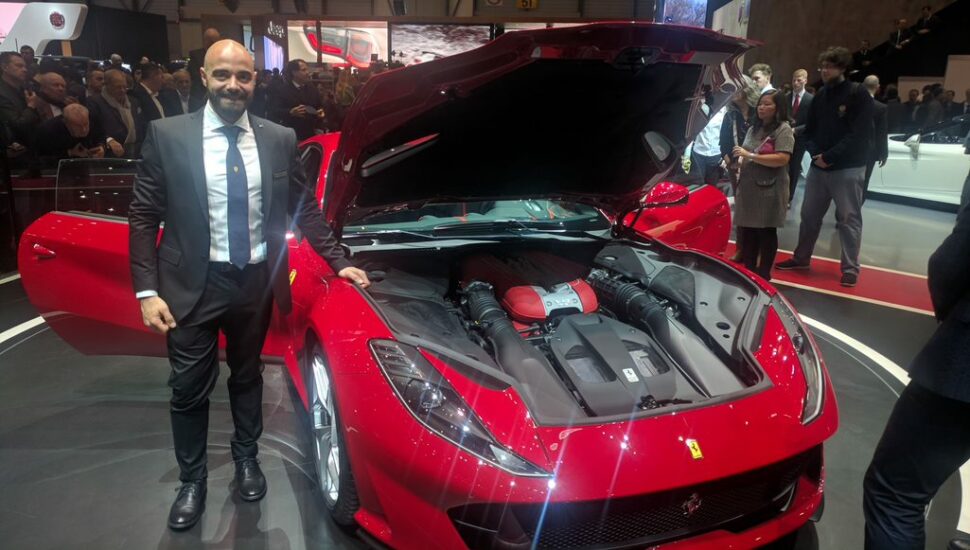
Photo by Marco Iannitto
Curiosity and passion for how things work
Q: How did you decide on studying Engineering at university?
A: I have always been extremely curious about how things work, being interested in engineering and building things. When it was time to decide which university course to go to, I had three options in mind – Medicine, Biology, and Engineering. I went into Engineering because of my personal interest and I was pretty sure it would give me better career options. I was very curious to learn about mechanics – to find out how things work.
Transiting to engineering school
Q: How did you adapt to university after leaving high school?
A: It was difficult at times. You get out from high school with a very basic knowledge of Math and Physics, and in general, how to study. The difficult part was approaching a new way of studying and new subjects. The challenge is just during the first month.
As soon as you realise that you have time and can adjust the way you study, and you can study the way you want, it is really up to you to build your own knowledge. It is scary at first, but also gives opportunities to decide how and what kind of knowledge you want to get. This helped me to build interest in what I was studying.
Mix of will and luck getting into Ferrari
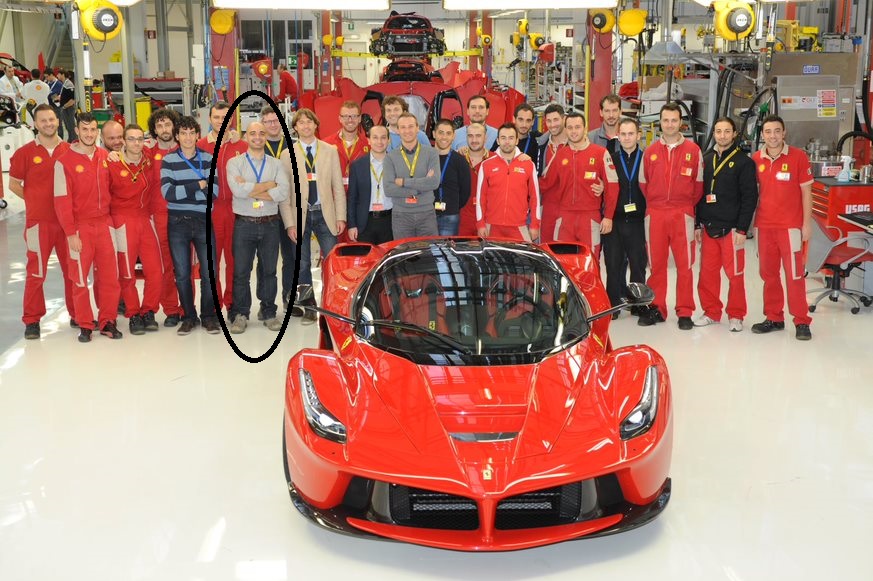
Photo by Marco Iannitto
Q: Did you always know that you wanted to work in Ferrari?
A: Not particularly but I always knew that working in Ferrari is the pinnacle for mechanical engineers. My mother said I told her one time I will work for Ferrari. I have no memory of me saying that but apparently she knew.
When I finished my Master’s in the US, I came back to Italy and really wanted to start working overseas. Almost immediately I got a job for a big consulting firm and I started working in the automotive industry as a consultant. Out of this assignment, I probably over-achieved and so as a reward, I was assigned to consult for Ferrari. Once I got there, I was still a consultant. I found out how they work in a very tight-knit team. I was fascinated by the technology, of course the cars, and also by the people. I decided I wanted to stay there. I worked my way through to get myself known and valuable. My contract got renewed yearly until eventually I became a full-time employee. It was a mix of luck and will for me.
Building the fastest electric hypercar in the world
Q: Tell us about your latest adventure building the fastest electric hypercar.
A: After my time in Ferrari, I decided to pursue a different adventure with Croatia-based company Rimac to help build the fastest electric hypercar in the world.
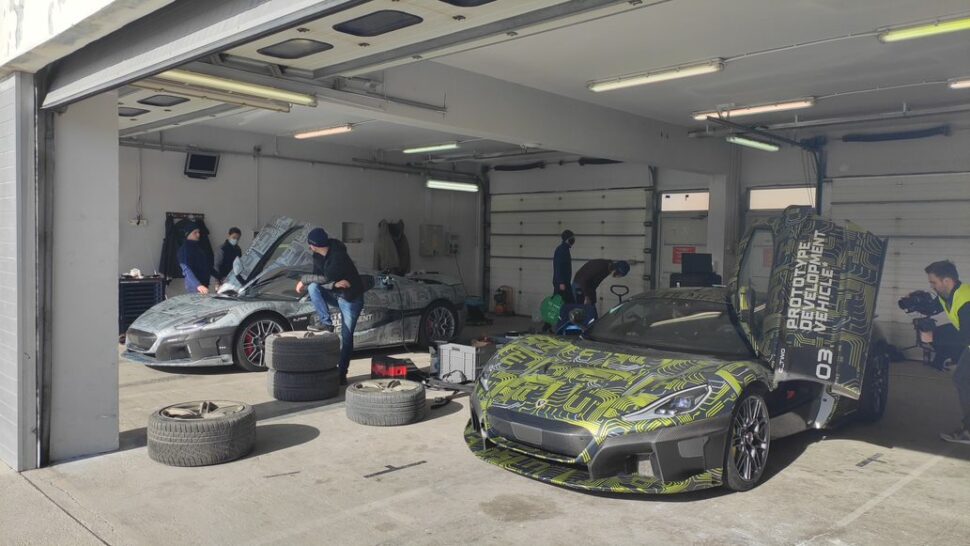
Photo by Marco Iannitto
It’s an amazing vehicle with more than 1900-horsepower. It’s what the owner of Rimac, Mate, wanted to build for a long time. It has shown the world what like-minded, extremely passionate and skilful people can achieve when they work together. The car has already set a few world records in terms of acceleration. We have reached 0 to 100 (kph) in less than 2 seconds.
Memorable breakthroughs in a fast-paced career
Q: What are some of the most memorable moments in your automotive career?
A: My most valuable memory is at the end of each project when the team gathers around the first series car. I still have those snapshots at my parents’ house. It reminds me of all the problems I had gone through and how the team overcame those problems.
I remember when I was working on the SF90, it took us four weeks to make the first prototype and make it move by an inch. I even shot a video of the car doing a reverse in the workshop. Our team then sent the video to our CEO. That was one of the biggest moments. I remember it and I still smile.
How can students prepare for the automotive industry
Q: How do you think our young learners and students today can prepare for a career in the automotive industry?
A: For sure, a strong mechanical background will always be needed to support the development of the cars. For building autonomous cars, software engineering has become more and more important. It is a key background that you must have. But in general, mechanical engineering will always give you the necessary foundation.
Skills, teamwork and passion for engineering
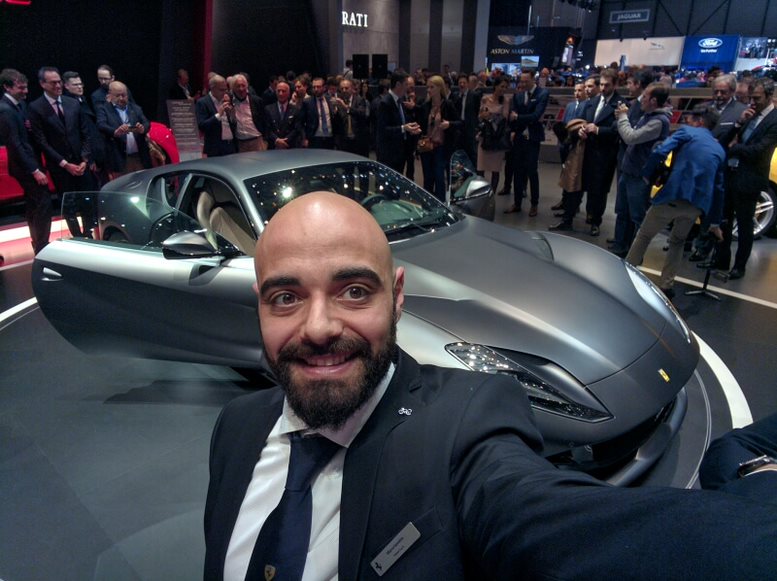
Photo by Marco Iannitto
Q: What are the most needed hard and soft skills to succeed in automotive engineering?
A: It requires a mix of technical skills and soft skills and a lot of teamwork. You must have the ability and passion to work with other people. You learn that the power of the team is much greater than the sum of the single elements.
You need to have a very strong Engineering background. The automotive industry is very big where you can cover different roles. I have always been in Research and Development where you need to understand the Physics behind things that happen. Having an engineering background is extremely important. Mechanical engineering gives you a 360 degree view of engineering.
Real world inspiration from elementary school teacher
Q: How did you overcome any difficulties in learning?
A: Once you get to understand the hard ‘why’ you are studying something, then you can push yourself harder to pass the subject and go towards (completing) the final degree. It was really understanding what I was doing that gave me the strength to finish my Engineering degree.
There needs to be a good balance between concepts and practical applications of the concepts. When I was giving private lessons in Math and Physics to children while in university, I found that telling kids the exact reason why they were studying certain things is helpful. Understanding the real-world application behind studying certain concepts was an important passage for them, as much as it was for me.
When I was in elementary school, we had some basic lessons in Physics. Our teacher was talking about the difference between elastic and inelastic collisions. To help us understand the concept, my teacher brought us to the backyard garden with a slingshot.
He threw steel balls against a steel wall, steel door, and concrete. That was how he explained the concept to us. It changes things completely for a kid when he or she can understand the need for studying certain things! I make it a point to maintain this approach when learning something new.
Keep your goal in sight and never give up
Q: What advice do you have for our young learners and students who are interested to join the automotive industry?
A: Believe in your dream and do not give up. My advice to young people and children interested in the automotive industry would be to try to figure out where you want the end point of your journey to be. Keep the goal always in front of you and you will find a way to get there. There are millions of paths that lead to the same goal. Knowing your goal and believing in what you want to do is the most important thing. Do not give up when things get overwhelming, and they do sometimes. Just follow your dreams.
For more articles, visit our page.



